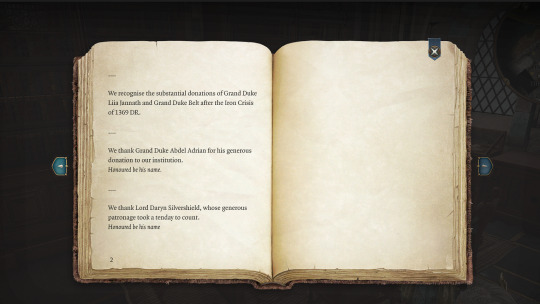#commerce act
Text

Four years before Rosa Parks ignited the Montgomery Bus boycott by refusing to give up her seat in Alabama, there was PFC Sarah Keys from the Keyesville neighborhood of Washington, NC, who when traveling from Fort Dix in NJ back home to Washington, NC on August 1, 1951, was told to relinquish her seat to a white Marine and move to the back of the bus.
Keys refused to move, whereupon the driver emptied the bus, directed the other passengers to another vehicle, and barred Keys from boarding it. When Keys asked why she shouldn’t ride the bus, she was arrested, and spent 13 hours in a cell. Keys was eventually ordered to pay a $25 fine for disorderly conduct, was released, and put on a bus to her hometown. Her case was brought before the Interstate Commerce Commission with Dovey Johnson Roundtree as her lawyer and wasn’t settled until 1955. In Sarah Keys v. Carolina Coach Company, the ICC favored Keys, ruling the Interstate Commerce Act forbids segregation.
#african#rosa parks#alabama#sarah keys#pfc#commerce act#afrakan#kemetic dreams#brownskin#afrakans#africans#brown skin
331 notes
·
View notes
Text
The RESTRICT Act in the US is NOT about TikTok or the parent company ByteDance. That's the cover.
The RESTRICT ACT allows the Secretary of Commerce to decide if another country is a foreign adversary and can then put us in a cyber war with that country or regime.
@pearlmania500 on TikTok
#Restrict Act#ban TikTok#tiktok#bytedance#china#secretary of commerce#politics#us politics#tiktok ban#pearlmania500
9 notes
·
View notes
Text
I slept in and just woke up, so here's what I've been able to figure out while sipping coffee:
Twitter has officially rebranded to X just a day or two after the move was announced.
The official branding is that a tweet is now called "an X", for which there are too many jokes to make.
The official account is still @twitter because someone else owns @X and they didn't reclaim the username first.
The logo is 𝕏 which is the Unicode character Unicode U+1D54F so the logo cannot be copyrighted and it is highly likely that it cannot be protected as a trademark.
Outside the visual logo, the trademark for the use of the name "X" in social media is held by Meta/Facebook, while the trademark for "X" in finance/commerce is owned by Microsoft.
The rebranding has been stopped in Japan as the term "X Japan" is trademarked by the band X JAPAN.
Elon had workers taking down the "Twitter" name from the side of the building. He did not have any permits to do this. The building owner called the cops who stopped the crew midway through so the sign just says "er".
He still plans to call his streaming and media hosting branch of the company as "Xvideo". Nobody tell him.
This man wants you to give him control over all of your financial information.
Edit to add further developments:
Yes, this is all real. Check the notes and people have pictures. I understand the skepticism because it feels like a joke, but to the best of my knowledge, everything in the above is accurate.
Microsoft also owns the trademark on X for chatting and gaming because, y'know, X-box.
The logo came from a random podcaster who tweeted it at Musk.
The act of sending a tweet is now known as "Xeet". They even added a guide for how to Xeet.
The branding change is inconsistent. Some icons have changed, some have not, and the words "tweet" and "Twitter" are still all over the place on the site.
TweetDeck is currently unaffected and I hope it's because they forgot that it exists again. The complete negligence toward that tool and just leaving it the hell alone is the only thing that makes the site usable (and some of us are stuck on there for work).
This is likely because Musk was forced out of PayPal due to a failed credit line project and because he wanted to rename the site to "X-Paypal" and eventually just to "X".
This became a big deal behind the scenes as Musk paid over $1 million for the domain X.com and wanted to rebrand the company that already had the brand awareness people were using it as a verb to "pay online" (as in "I'll paypal you the money")
X.com is not currently owned by Musk. It is held by a domain registrar (I believe GoDaddy but I'm not entirely sure). Meaning as long as he's hung onto this idea of making X Corp a thing, he couldn't be arsed to pay the $15/year domain renewal.
Bloomberg estimates the rebranding wiped between $4 to $20 billion from the valuation of Twitter due to the loss of brand awareness.
The company was already worth less than half of the $44 billion Musk paid for it in the first place, meaning this may end up a worse deal than when Yahoo bought Tumblr.
One estimation (though this is with a grain of salt) said that Twitter is three months from defaulting on its loans taken out to buy the site. Those loans were secured with Tesla stock. Meaning the bank will seize that stock and, since it won't be enough to pay the debt (since it's worth around 50-75% of what it was at the time of the loan), they can start seizing personal assets of Elon Musk including the Twitter company itself and his interest in SpaceX.
Sesame Street's official accounts mocked the rebranding.
158K notes
·
View notes
Text

Counting House Family Vault List


Record of the Honoured


Waukeen's Guide to Commerce


Baldur's Mouth Gazette


#counting house#bg3 counting house#bg3#baldur's gate 3#screenshots#bg3 screenshots#books#gazette#newspaper#the gazette#bg3 gazette#bg3 books#Counting House Family Vault List#Record of the Honoured#Baldur's Mouth Gazette#Waukeen's Guide to Commerce#bg3 act 3#bg3 lorroakan#bg3 jannath#bg3 cazador#bg3 grey#bg3 ravengard#bg3 gortash#bg3 keene#bg3 nine fingers#bg3 viconia#bg3 glitterbeard
1 note
·
View note
Text
UK and US sign pact to develop AI safety tests
New Post has been published on https://thedigitalinsider.com/uk-and-us-sign-pact-to-develop-ai-safety-tests/
UK and US sign pact to develop AI safety tests
.pp-multiple-authors-boxes-wrapper display:none;
img width:100%;
The UK and US have signed a landmark agreement to collaborate on developing rigorous testing for advanced AI systems, representing a major step forward in ensuring their safe deployments.
The Memorandum of Understanding – signed Monday by UK Technology Secretary Michelle Donelan and US Commerce Secretary Gina Raimondo – establishes a partnership to align the scientific approaches of both countries in rapidly iterating robust evaluation methods for cutting-edge AI models, systems, and agents.
Under the deal, the UK’s new AI Safety Institute and the upcoming US organisation will exchange research expertise with the aim of mitigating AI risks, including how to independently evaluate private AI models from companies such as OpenAI. The partnership is modelled on the security collaboration between GCHQ and the National Security Agency.
“This agreement represents a landmark moment, as the UK and the United States deepen our enduring special relationship to address the defining technology challenge of our generation,” stated Donelan. “Only by working together can we address the technology’s risks head on and harness its enormous potential to help us all live easier and healthier lives.”
The partnership follows through on commitments made at the AI Safety Summit hosted in the UK last November. The institutes plan to build a common approach to AI safety testing and share capabilities to tackle risks effectively. They intend to conduct at least one joint public testing exercise on an openly accessible AI model and explore personnel exchanges.
Raimondo emphasised the significance of the collaboration, stating: “AI is the defining technology of our generation. This partnership is going to accelerate both of our Institutes’ work across the full spectrum of risks, whether to our national security or to our broader society.”
Both governments recognise AI’s rapid development and the urgent need for a shared global approach to safety that can keep pace with emerging risks. The partnership takes effect immediately, allowing seamless cooperation between the organisations.
“By working together, we are furthering the long-lasting special relationship between the US and UK and laying the groundwork to ensure that we’re keeping AI safe both now and in the future,” added Raimondo.
In addition to joint testing and capability sharing, the UK and US will exchange vital information about AI model capabilities, risks, and fundamental technical research. This aims to underpin a common scientific foundation for AI safety testing that can be adopted by researchers worldwide.
Despite the focus on risk, Donelan insisted the UK has no plans to regulate AI more broadly in the short term. In contrast, President Joe Biden has taken a stricter position on AI models that threaten national security, and the EU AI Act has adopted tougher regulations.
Industry experts welcomed the collaboration as essential for promoting trust and safety in AI development and adoption across sectors like marketing, finance, and customer service.
“Ensuring AI’s development and use are governed by trust and safety is paramount,” said Ramprakash Ramamoorthy of Zoho. “Taking safeguards to protect training data mitigates risks and bolsters confidence among those deploying AI solutions.”
Dr Henry Balani of Encompass added: “Mitigating the risks of AI, through this collaboration agreement with the US, is a key step towards mitigating risks of financial crime, fostering collaboration, and supporting innovation in a crucial, advancing area of technology.”
(Photo by Art Lasovsky)
See also: IPPR: 8M UK careers at risk of ‘job apocalypse’ from AI
Want to learn more about AI and big data from industry leaders? Check out AI & Big Data Expo taking place in Amsterdam, California, and London. The comprehensive event is co-located with other leading events including BlockX, Digital Transformation Week, and Cyber Security & Cloud Expo.
Explore other upcoming enterprise technology events and webinars powered by TechForge here.
Tags: ai, artificial intelligence, ethics, government, Politics, safety, Society, testing, uk, usa
#agreement#ai#ai & big data expo#ai act#ai model#ai news#ai safety summit#AI systems#amp#approach#Art#Articles#artificial#Artificial Intelligence#background#biden#Big Data#Careers#challenge#Cloud#collaborate#Collaboration#Commerce#Companies#comprehensive#crime#customer service#cutting#cyber#cyber security
0 notes
Text
Six down, six to go. 12 days left
#H.R. 4366#President Biden#biden#government shutdown?#congress#senate#house of representatives#appropriations#Consolidated Appropriations Act 2024#FY2024#Full year funding#Agriculture#commerce justice science#energy and water#interior and environment#military construction and veterans#transportation housing and urban development#finally#30% of the government#$460 billion#back to work#next up#now to the hard stuff#signed sealed delivered
1 note
·
View note
Text
Copy(right) and Copy(wrong): Defending Fair Use, Protecting Ourselves and Our Students
As Janice Walker notes in Copy-rights and Copy-wrong, it’s so easy to save information and media files nowadays that we forget that what’s easily obtained wasn’t always meant to be publicly available. There are those, like Lawrence Lessig, who would argue that “information wants to be free”, and that we shouldn’t set up a legal system to criminalize things we know people will do anyway and that, ultimately, aren’t harming anyone. But, as much as I might be tempted to agree (so long as we make a distinction between huge conglomerates arbitrarily extending copyright every fifty years and individual artists, creators, and small businesses trying to make a living), I’m more immediately concerned with how I can teach students to protect themselves when using media for class or otherwise. The most common tool given to help prevent students from running afoul of copyright is these four principles for determining fair use:
What is the purpose of the use? Educational, nonprofit, and personal use are more likely to be considered fair than is commercial use.
What is the nature of the work being used? In most cases, imaginative and unpublished materials can be used only if you have the permission of the copyright holder.
How much of the copyrighted work is being used? If a writer uses a small portion of a text for academic purposes, this use is more likely to be considered fair than if he or she uses a whole work for commercial purposes.
What effect would the use have on the market for the original? The use of a work is usually considered unfair if it would hurt sales of the original.
(Maimon et al qtd. Westbrook 167)
Of course, these four principles are only a heuristic, and people can and do face copyright strikes for use that follows all four of these principles when they use material in a way the copyright holder doesn’t like. For that reason, Steve Westbrook argues, we shouldn’t take our concern with copyright to extremes.
By asking for permission to use copyrighted material even when we are reasonably confident it falls under fair use, we forfeit an opportunity to “deny ultimate power to holders of derivative rights, to recover a sense of agency and authority for the writer who relies on appropriative practices, and to counter abuses of copyright law (Westbrook 166).”
Janice Walker offers a few additional, more specific considerations for using copyrighted material in online spaces that can help students build multimedia projects with confidence (Walker 214):
1. Follow guidelines already established for published (i.e., print) sources, if possible. In other words, if you’re using textual materials (i.e. book excerpts or articles) where this would make sense.
2. Point to (i.e., link to) images, audio, and video files rather than downloading them, if possible. While I admire the intent behind this recommendation, to preserve as much context and ‘paper trail’ as possible, I do wonder if it could create accessibility concerns for disabled visitors/viewers/readers/participants, especially those using screenreaders.
3. Always cite sources carefully, giving as much information as possible to allow the user to relocate the source.
4. If in doubt, ask. In doing so, be sure to explain exactly what and how much you intend to use and what you intend to use it for.
She also argues that, as composition teachers, we have a particular obligation to use media mindfully and to educate other teachers and scholars about copyright. In the spirit of taking up that challenge, I reproduce here an account of the rules laid out in order for something to be considered fair classroom use under the TEACH act (Reyman qtd. Walker 209-210):
Use is limited to works that are performed (such as reading a play or showing a video) or displayed (such as a digital version of a map or a painting) during class activities. The TEACH Act does not apply to materials for students’ independent use and retention, such as textbooks or articles from journals.
The materials to be used cannot include those primarily marketed for the purposes of distance education (i.e., an electronic textbook or a multimedia tutorial).
Use of materials must occur “under the actual supervision of an instructor”.
Materials must be used “as an integral part of a class session.”
Use must occur as a “regular part of the systematic mediated instructional activities.”
Students must be informed that the materials they access are protected by copyright.
Further, it remains incumbent on faculty and/or administrators to ensure that the following restrictions are adhered to:
limiting access to material to only those students enrolled in the class;
ensuring that digital versions are created from analog works only if a digital version of the work is not already available;
employing technological measures to “reasonably prevent” retention of the work “for longer than the class session”;
developing copyright policies on the educational use of materials; and
providing informational resources for faculty, students, and staff that “accurately describe, and promote compliance with, the laws of the United States relating to copyright.”
Reading these guidelines in full motivates me to talk to my department head and seek out more detailed explanations from the federal government, because per these guidelines I’m pretty sure uploading a chapter of a copyrighted text for students to read for homework, which I and every teacher I know do all the time, wouldn’t be fair use because it’s not “under the actual supervision of an instructor”.
#week 7#copyright#TEACH act#fair use#walker#westbrook#lessig#copyrights and copywrongs#remix making art and commerce thrive#what we talk about when we talk about fair use
0 notes
Link
#Federal Government#Puerto Rico#Science and Environment#CHIPS and Science Act#Contextomy#Invest Puerto Rico#Pedro Pierluisi#PRBio Tech Hub#Puerto Rico Department of Economic Development and Commerce#Puerto Rico Science#Technology and Research Trust
0 notes
Text
DCRUST: Courses, Fees, Admission 2023, Cutoff, Placement, Scholarships
DCRUST offers degree, diploma, and certificate programs at the undergraduate (UG), postgraduate (PG), and doctorate (Ph.D.) levels. DCRUST is well-known for its flagship program BTech, which requires candidates to take the JEE Main examination. The university also accepts other national-level entrance exams such as GATE, CMAT, and NATA for admission to programs such as M.Tech, MBA, and B.Arch.
Offical site:- https://www.dcrusm.org.in/
#durust#Deenbandhu Chhotu Ram University of Science and Technology (DCRUST) was founded by the Haryana State Legislature Act No. 29 of 2006 and is#1956. Came into existence in 2006#the University was formerly known as Chhotu Ram State College of Engineering#(1987-2006). The university was accredited by the NAAC with ‘A’ Grade and the National Board of Accreditation (NBA) and is a member of vari#Association of Indian Universities (AIU)#Federation of Indian Chambers of Commerce and Industry (FICCI)#International Road Federation (IRF) and Indian Road Congress (IRC)#among others.DCRUST offers UG#PG#and PhD courses. Some of the major highlights around Deenbandhu Chhotu Ram University of Science and Technology are tabulated below:#Offical site:- https://www.dcrusm.org.in/
0 notes
Text
The Bazee.com Legal Battle: Intermediary Liability, Online Platforms, and Free Speech
The Bazee.com Controversy: Avnish Bajaj’s Arrest and the Freedom of Online Marketplaces
In the early 2000s, the world witnessed the rapid growth of e-commerce and online marketplaces. One such platform, Bazee.com, later known as eBay.in, became a household name in India. However, the company and its CEO, Avnish Bajaj, found themselves embroiled in a highly controversial legal battle that raised…

View On WordPress
#Avnish Bajaj#Bazee.com#content moderation#E-commerce#eBay.in#Free Speech#India#Indian Penal Code#Information Technology Act#intermediaries#intermediary liability#legal battle#Liability#obscenity#online marketplace#Online Marketplaces#Supreme Court#user-generated listings
1 note
·
View note
Text
New Jersey can sue the gun industry under a “public nuisance” law, a federal appeals court ruled Thursday, handing a major victory to the state after last year’s U.S. Supreme Court decision loosening public carrying restrictions.
The Third Circuit Court of Appeals’ dismissal of a challenge brought by the National Shooting Sports Foundation last year comes as New Jersey and other states look for novel ways to balance public safety with gun rights under the high court’s June 2022 ruling in New York State Rifle & Pistol Association, Inc. v. Bruen.
New Jersey’s public nuisance law, signed by Democratic Gov. Phil Murphy a month later, may offer a template to other states following Thursday’s ruling, which said the shooting foundation “jumped the gun” in its challenge and did not justify the court’s intervention. Other blue states, such as Delaware and California, have enacted similar measures designed to open the gun industry to legal action.
“Because the Foundation’s case is not yet fully formed, we will vacate the preliminary injunction and remand with instructions to dismiss this action for lack of jurisdiction,” the court wrote.
Judge Zahid N. Quraishi had temporarily blocked the law from taking effect earlier this year, saying it appeared at odds with the federal Protection of Lawful Commerce in Arms Act of 2005, which shields the gun industry from lawsuits when their products are used during the commission of a crime. However, the ruling said that the foundation’s theories of the law’s harm to its members “fail” because they offered vague allegations, and it did not show a substantial threat of the law’s enforcement.
The sports foundation disagreed with the decision and noted that it did not say the state law doesn’t violate the federal commerce act, but “it clearly does.”
“Should New Jersey’s attorney general attempt to enforce the law, we will immediately refile our complaint,” Lawrence G. Keane, senior vice president and general counsel for the foundation, said in a statement.
The Murphy administration signed the public nuisance law as part of a series of gun reforms. It is a relatively new approach that would allow the state to sue the firearms industry over public nuisance violations for the “sale, manufacturing, distribution, importing, or marketing of a gun-related product.” The state attorney general, Matt Platkin, created a new office “with the specific mandate of bringing civil enforcement actions against firearm companies.” Platkin said New Jersey’s was the first such office in the country.
“Our law never should have been enjoined, and now it will be back in effect in its entirety,” Platkin said in a statement. He called the law “an important public safety tool” and the new office is “dedicated to holding accountable those whose unlawful conduct causes bloodshed, and fuels the gun violence epidemic, for the sake of their bottom line.”
Murphy said he is “thrilled” by the ruling and his administration “will always fight for the safety of New Jersey residents, even when it means taking on gun sellers that put profits above innocent lives.”
#us politics#news#politico#new jersey#2023#gun violence#gun rights#gun laws#public nuisance laws#gun manufacturers#Third Circuit Court of Appeals#National Shooting Sports Foundation#Gov. Phil Murphy#Judge Zahid N. Quraishi#Protection of Lawful Commerce in Arms Act of 2005#Matt Platkin#gun violence epidemic
11 notes
·
View notes
Text
Amity Kolkata stands out as one of the top commerce colleges in Kolkata. With its commitment to academic excellence, industry-oriented curriculum, Amity Kolkata has established itself as a top choice for aspiring commerce professionals in the city
#commerce colleges in kolkata#acting colleges in kolkata#best acting colleges in kolkata#best b.tech colleges in kolkata
0 notes
Text
Things Biden and the Democrats did, this week #13
April 5-12 2024
President Biden announced the cancellation of a student loan debt for a further 277,000 Americans. This brings the number of a Americans who had their debt canceled by the Biden administration through different means since the Supreme Court struck down Biden's first place in 2023 to 4.3 million and a total of $153 billion of debt canceled so far. Most of these borrowers were a part of the President's SAVE Plan, a debt repayment program with 8 million enrollees, over 4 million of whom don't have to make monthly repayments and are still on the path to debt forgiveness.
President Biden announced a plan that would cancel student loan debt for 4 million borrowers and bring debt relief to 30 million Americans The plan takes steps like making automatic debt forgiveness through the public service forgiveness so qualified borrowers who don't know to apply will have their debts forgiven. The plan will wipe out the interest on the debt of 23 million Americans. President Biden touted how the plan will help black and Latino borrowers the most who carry the heavily debt burdens. The plan is expected to go into effect this fall ahead of the election.
President Biden and Vice-President Harris announced the closing of the so-called gun show loophole. For years people selling guns outside of traditional stores, such as at gun shows and in the 21st century over the internet have not been required to preform a background check to see if buyers are legally allowed to own a fire arm. Now all sellers of guns, even over the internet, are required to be licensed and preform a background check. This is the largest single expansion of the background check system since its creation.
The EPA published the first ever regulations on PFAS, known as forever chemicals, in drinking water. The new rules would reduce PFAS exposure for 100 million people according to the EPA. The Biden Administration announced along side the EPA regulations it would make available $1 billion dollars for state and local water treatment to help test for and filter out PFAS in line with the new rule. This marks the first time since 1996 that the EPA has passed a drinking water rule for new contaminants.
The Department of Commerce announced a deal with microchip giant TSMC to bring billions in investment and manufacturing to Arizona. The US makes only about 10% of the world's microchips and none of the most advanced chips. Under the CHIPS and Science Act the Biden Administration hopes to expand America's high-tech manufacturing so that 20% of advanced chips are made in America. TSMC makes about 90% of the world's advanced chips. The deal which sees a $6.6 billion dollar grant from the US government in exchange for $65 billion worth of investment by TSMC in 3 high tech manufacturing facilities in Arizona, the first of which will open next year. This represents the single largest foreign investment in Arizona's history and will bring thousands of new jobs to the state and boost America's microchip manufacturing.
The EPA finalized rules strengthening clean air standards around chemical plants. The new rule will lower the risk of cancer in communities near chemical plants by 96% and eliminate 6,200 tons of toxic air pollution each year. The rules target two dangerous cancer causing chemicals, ethylene oxide and chloroprene, the rule will reduce emissions of these chemicals by 80%.
the Department of the Interior announced it had beaten the Biden Administration goals when it comes to new clean energy projects. The Department has now permitted more than 25 gigawatts of clean energy projects on public lands, surpass the Administrations goal for 2025 already. These solar, wind, and hydro projects will power 12 million American homes with totally green power. Currently 10 gigawatts of clean energy are currently being generated on public lands, powering more than 5 million homes across the West.
The Department of Transportation announced $830 million to support local communities in becoming more climate resilient. The money will go to 80 projects across 37 states, DC, and the US Virgin Islands The projects will help local Infrastructure better stand up to extreme weather causes by climate change.
The Senate confirmed Susan Bazis, Robert White, and Ann Marie McIff Allen to lifetime federal judgeships in Nebraska, Michigan, and Utah respectively. This brings the total number of judges appointed by President Biden to 193
#Thanks Biden#Joe Biden#student loans#student loan debt#debt forgiveness#gun control#forever chemicals#PFAS#climate change#green energy
3K notes
·
View notes
Text
This is the first minibus, which just passed the House ahead of Friday night's deadline. It contains:
Agriculture Appropriations
Commerce Justice Science Appropriations
Energy & Water Appropriations
Interior & Environment Appropriations
Military Construction & Veterans Appropriations
Transportation, Housing and Urban Development Appropriations
That's six of the spending bills in one, covering 30% of the federal budget.
#HR 4366#minibus#appropriations bill#consolidated appropriations act#FY2024#Agriculture#commerce#justice#science#energy & water#interior#EPA#military construction#veterans affairs#transportation#Housing and Urban Development#thud#two days left#Not a CR#Congress#House of Representatives
1 note
·
View note
Text
URGENT: Congress about to pass a mass censorship and surveillance bill under the guise of "protecting children"
May 13 2023
The Senate has been in a "do something!" mode regarding children's online safety. They're using this as an excuse to push for widespread internet censorship and surveillance. The EARN IT Act, has a slimmer chance of passing with widespread opposition and some senators saying they won't vote for it. TLDR;The real threat is actually KOSA (s.1409), the Kid's Online Safety Act, which will mass censor and surveill the entire internet by giving all 50 state attorney generals the power to remove content that is "harmful" for kids, and force you to upload your govt ID online to access the internet. I'll explain how it works below the action items but it's absolutely urgent that anyone who likes having a free and open internet fights back. It's all hands on deck, because this has so much public support it's insane:
HOW TO FIGHT KOSA
CALL YOUR REPRESENTATIVES & THE COMMERCE COMMITTEE
This is a link to the Senate Commerce Committee phone numbers and a call script to read off of. (202) 224-3121 connects you to the congressional hotline
Opposition is getting drowned, and these upcoming weeks will be heavy for lobbying and they're using young people to do it. We NEED to show these senators that young people are actually opposed to this and don't want it.
2. Sign these petitions
Open Letter Against KOSA
Petition 1
Petition 2
Petition 3
Petition 4
Resistbot: Text PHJDYH to 50409
3. Spread the word.
The opposition is getting absolutely drowned online. Dove has nearly 100k signatures to push for KOSA. Influencers on tiktok are pushing for this without ever having read the bill. Fucking Lizzo is sponsoring it. If you have twitter, reddit, tiktok, are in any community, SPREAD THE WORD, PLEASE.
Here is a linktree with all the above petitions for easy shargin: Link to linktree
HOW KOSA WORKS
First, KOSA pressures platforms to install filters that would wipe the net of anything deemed “inappropriate” for minors. This means instructing platforms to censor. We saw how these filters impacted websites firsthand with tumblr in 2018, with not only blocking all adult content but also sfw queer content such as suicide hotlines, art archives, wiping out entire blogs because they had queer fandom related posts, etc. Places that already use content filters have restricted important information about suicide prevention and LGBTQ+ support groups. KOSA would spread this kind of censorship to every corner of the internet. And who gets to decide what is and isn't harmful for minors? Oh don't worry, just every single state attorney general and the FTC, which is appointed by the president. You know, the same attorney generals that just banned gender-affirming healthcare under the guise that it "ruins mental health" of minors. This is why the Heritage Foundation was one of the first to sponsor the bill because they can use it to censor trans content, and Senator Marsha Blackburn of Tennessee is it's co-author.
Second, KOSA would ramp up the online surveillance of all internet users by forcing websites to use age verification and parental monitoring tools. Yup, that's right. Now every single person who wants to access the internet has to upload their govt ID online to third party apps that get hacked all the time. You queer in a red state? You undocumented? You an activist? Have fun getting all your online activity and metadata attached to your govt ID.
Over 90+ human and LGBT rights groups agree that KOSA is dangerous and updates to the 2023 version won’t and can’t address the big problems with the bill. This bill has MASSIVE bipartisan support, and the authors Blumenthal and Blackburn (yes, that Blumenthal that's pushing the EARN IT Act, and who also sponsored the RESTRICT Act and SOPA/PIPA if you remember) are using the tragedy of mothers who lost their kids to online harassment and young adults who've been traumatized online to lobby for it, and got Dove the company to use a bunch of influencers to push for this under the guise it prevents eating disorders...I wish I was lying. There are already 30 co-sponsors.
It is all hands on deck. I'm dead serious when I say if this bill is passed it is the beginning if not end of the open and free internet.
13K notes
·
View notes
Text
This isn’t about TikTok. It’s about access to the internet!
My fellow American residents, citizens, and visa holders…

The RESTRICT ACT about allowing the Secretary of Commerce to determine if a country should have access to American internet?! They can deem a foreign government or regime if engaged in a long term pattern or significant issues…to deem them them adversaries.
(Wiki page for the RESTRICT Act)
So, are we becoming like China where the internet will become so limited because the government decides it?!
#restrict act#TikTok#is this a cyber war#secretary of commerce#national intelligence#foreign adversaries#American internet#USA#foreign government#foreign regime#Reddit#journalism#china#south china morning post#communist party of china#political communism
1 note
·
View note